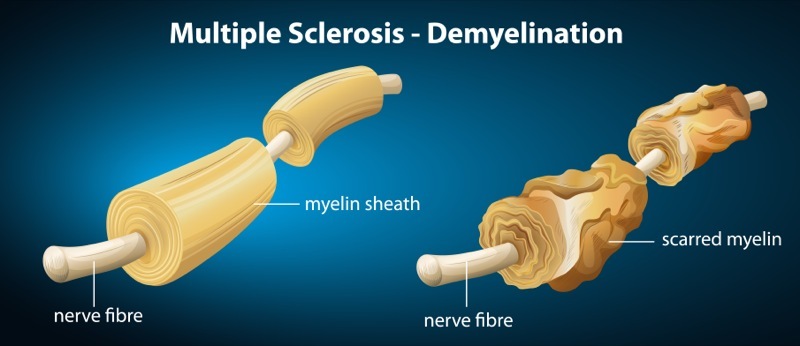MS Susceptibility May be Influenced by Female-Specific Variations in MicroRNAs-Coding Genes
Written by |

In a new study entitled “Variants of MicroRNA Genes: Gender-Specific Associations with Multiple Sclerosis Risk and Severity,” researchers identified variations in genes coding for microRNAs that influence patients’ susceptibility to develop multiple sclerosis, as well as the disease course. Most importantly, these variations were gender specific, identified only in women patients. The study was published in the International Journal of Molecular Sciences.
Multiple sclerosis (MS) is a chronic autoimmune disease where patients’ own immune system attacks myelin, a component of nerve fibers, leading to paralysis. The disease’s most common course is characterized by sporadic symptoms (clinical episodes) followed by periods of stability, and at this stage termed relapsing-remitting MS (RRMS). This stage affects twice as many women as men and escalates, within ten years, to a stage of symptom worsening, termed secondary progressive MS (SPMS). Both stages – referred to as bout-onset MS – affect approximately 85% to 90% of patients.
The disease arises due to complex interactions between environmental risk factors and genetic susceptibility (determined by multiple genes). An additional layer of complexity was discovered when several recent studies suggested that epigenetic changes in susceptibility genes (i.e., mechanisms that influence gene expression without altering the underlying DNA sequence, including DNA methylation and histone modification) might play a key role in MS development.
An additional mechanism controlling gene expression is mediated by microRNAs (small, single-stranded non-coding RNA molecules), most commonly by activating mRNA degradation or repression of its translation (of note, the first step in gene expression is transcription of the genetic information in DNA into mRNA; the latter is then translated into a protein — as a result, maintaining proper mRNA levels is a key component of gene expression). Notably, alterations in microRNA biogenesis have been reported in MS and other autoimmune diseases.
RELATED: Mitochondria May Play a Role in MS Development and Progression
In this new study, authors hypothesized whether variations in gene coding for microRNAs impact microRNAs function and contribute to MS pathogenesis. To test their hypothesis, authors enrolled 561 unrelated patients with bout-onset MS and 441 healthy volunteers and analyzed microRNAs gene variants and their impact on MS risk and severity. They focused their analysis on gene variations (specifically, single nucleotide polymorphisms, SNPs) in microRNAs previously reported as having a role on inflammatory conditions.
The team identified SNPs on four microRNA genes – MIR223 and MIR146A; MIR499A and MIR196A2 – to influence MS susceptibility and MS development, respectively. Additionally, they identified pairwise interactions for MIR223 with MIR146A and MIR499A with MIR196A2. Importantly, microRNA genes’ variants were gender-specific, associating specifically with women but not with men.
In recent years, researchers have made advancements in better understanding the pathogenesis of diseases based on a wide range of genetic factors, including ethnicity and gender. These new findings into how gender-specific MicroRNA genes affect MS risk and severity may help researchers develop future treatment strategies that are fine-tuned for either men or women in order to maximize their effectiveness.


